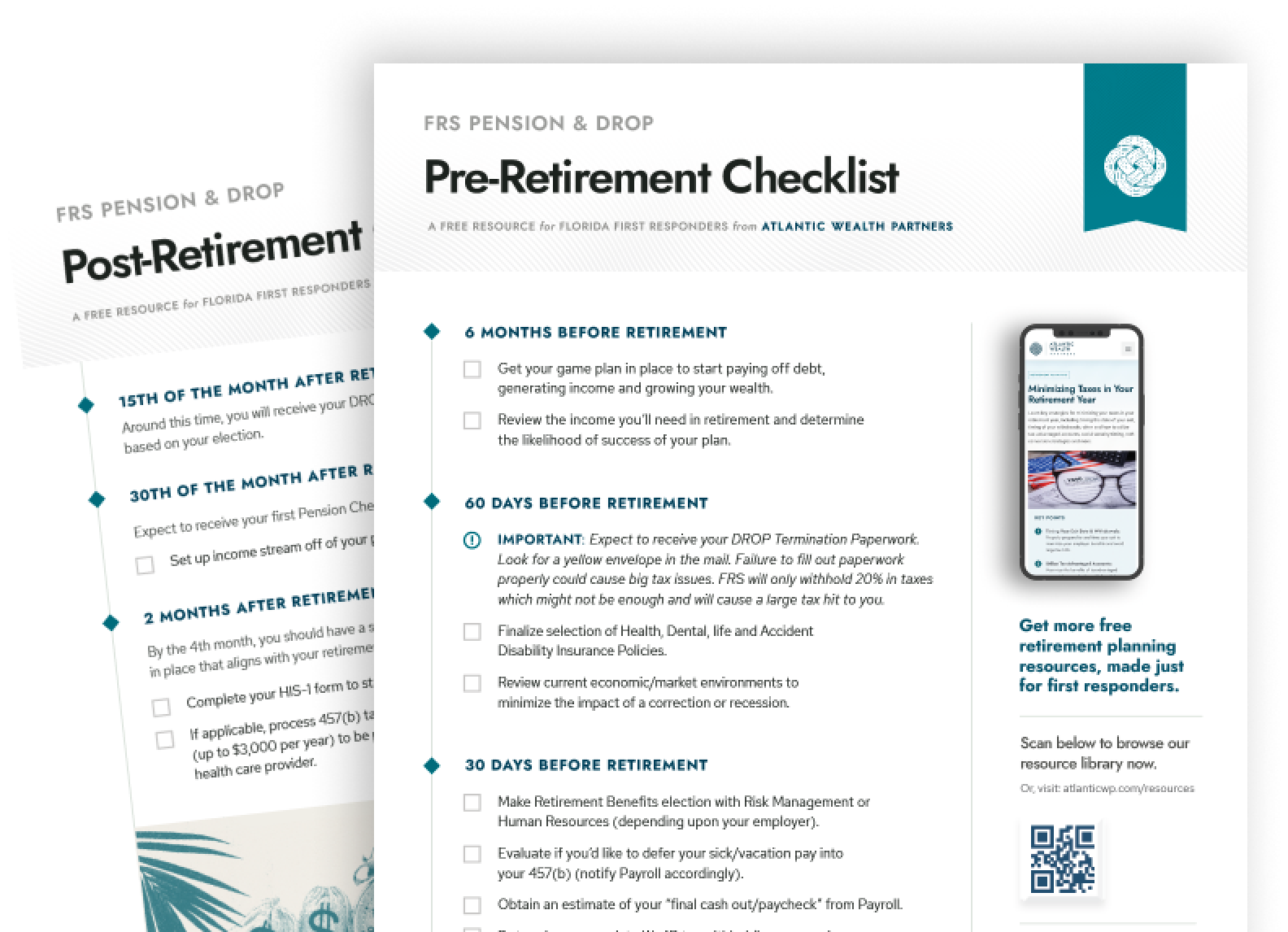Many clients come to us not knowing that they CANNOT contribute to an Individual Retirement Account (IRA) and receive a tax deduction because they participate in an employer-sponsored retirement plan. This includes those with defined benefit pensions and FRS Investment.
If you participate in your employer’s plan and are above the income threshold (presently $87,000 for single filers and $143,000 for married couples filing jointly), then you are ineligible to make deductible IRA contributions. However, you are still permitted to make nondeductible IRA contributions.
Eligibility for IRA Contribution Deductible If Covered by Employer’s Retirement Plan
| 2024 Tax Filing Status | MAGI* | Deduction Eligibility |
|---|---|---|
| Single | $77,000 or less | Full deduction up your contribution limit |
| Single | $77,000-$87,000 | Partial deduction |
| Single | $87,000 or more | No deduction |
| Married, filing jointly | $123,000 or less | Full deduction up to your contribution limit |
| Married, filing jointly | $123,000-$143,000 | Partial deduction |
| Married, filing jointly | $143,000 or more | No deduction |
| Married, filing separately | Less than $10,000 | Partial deduction |
| Married, filing separately | $10,000 or more | No deduction |
Nondeductible vs. Deductible Contributions
Nondeductible contributions to a traditional IRA are subject to the same contribution limits as deductible IRA contributions. You can contribute up to $7,000 in 2024 and $8,000 for catch-up if you are over the age of 50.
- Deductible Contributions:
- Made with pre-tax dollars.
- Eligible for a tax deduction for the current or prior calendar year through April 15th.
- Grow tax-deferred.
- Withdrawals are taxed as ordinary income.
- Nondeductible Contributions:
- Made with after-tax dollars.
- Not eligible for a tax deduction.
- Not taxed when you withdraw the money, provided you do not withdraw more than your original basis and that the basis is tracked annually on Form 8606.
- Additional withdrawals are taxed at your marginal tax rate.
Roth IRA Contributions
- Made with after-tax dollars.
- Not eligible for a tax deduction.
- Qualified distributions are tax-free.
- Account must be open for 5 years to take a qualified withdrawal.
So, you are given the option of having all your money grow tax-free in a Roth IRA versus making nondeductible IRA contributions and only receiving a return of your basis. Which do you think is better?
How to Report on Your Taxes
You must file Form 8606 to report nondeductible IRA contributions. This form creates your “basis” in the IRA.
- You can make both deductible and nondeductible contributions to a traditional IRA, but only your basis can be withdrawn tax-free.
- File this form each year you contribute to your IRA.
- Common mistake: clients forgetting to complete Form 8606, but you can report contributions in arrears if necessary.
Correcting Non-Deductible Contributions
- You can make a nondeductible IRA contribution each year, then convert it to a Roth IRA using the backdoor Roth IRA approach.
- Pay taxes on any converted amount above your basis at the time of conversion.
- Avoid the 10% early distribution penalty by paying taxes from another source.
Example:
- Invest $6,000 in a nondeductible IRA, it grows to $10,000.
- Convert the full amount to a Roth IRA, paying taxes on the $4,000 growth.
- Withhold $2,000 for taxes, resulting in a $200 early distribution penalty.
Pro-Rata Rule:
- Basis for Roth conversion must be calculated using a pro-rata formula if you have other IRA accounts.
- IRS considers all your IRA accounts combined when determining taxable income.
Our Expert Recommendation
We highly recommend converting all non-deductible IRA contributions to a Roth IRA so that all future growth is tax-free. This simplifies tracking your basis and maximizes the benefits of tax-free compound growth.
WORK WITH AWP
Let our experts review your current approach to IRA contributions.
The right approach can help maximize your retirement income and assets while minimizing your future tax liabilities. Please contact our office if you would like assistance reviewing your non-deductible IRA contributions and correcting them, or if you would like a review to ensure that you are maximizing the tax efficiency of your retirement plan!



